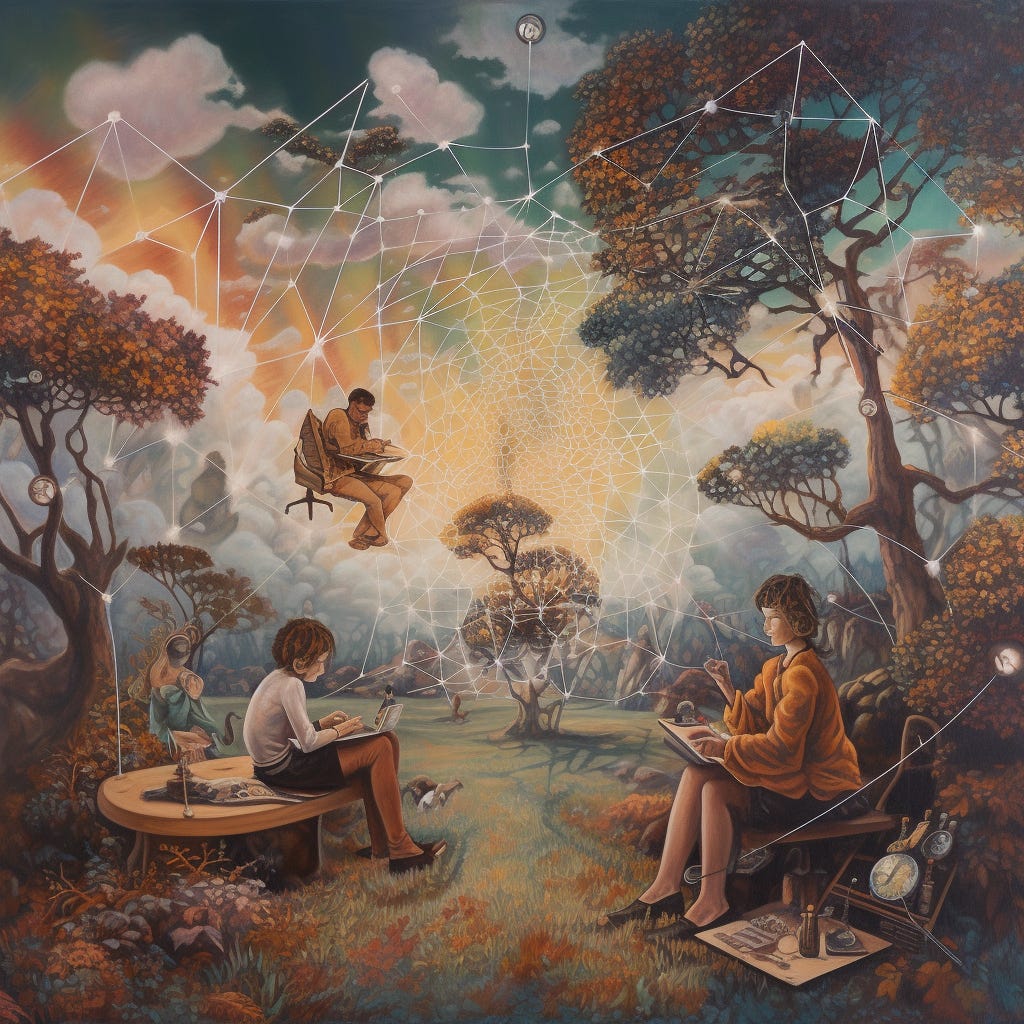One idea that I find very interesting is to use small, decentralized, open-source language models as personal universal interface to technology. They could provide users with a natural and intuitive way to interact with various devices and services. These models could be fine-tuned to understand each user's unique communication style, preferences, and requirements, enabling seamless communication with APIs and data sources. As a result, users could access a wide range of services and resources through a unified and coherent conversational experience, making technology more accessible and user-friendly.
A privacy-preserving fine-tuning process could run continuously. It would provide iterative model updates that incorporate user interactions and feedback, allowing the model to adapt to needs and preferences over time. Techniques like federated learning could be employed to train models on decentralized data without sharing it directly, ensuring users maintain control over their data.
Integration of these personalized language model interfaces into the larger technology value chain could be achieved by connecting them to various APIs. OpenAI has demonstrated this idea already with ChatGPT Plugins. As more services adopt standard APIs and communication protocols, these interfaces could act as a bridge between users and diverse technological solutions. If an open source solution delivers many eyeballs early on, it might give them a voice and access.
The lightweight and resource-efficient nature of these small models could allow for deployment on a wide range of devices, eventually even on the edge on our phones. Critics may argue that smaller models lack the accuracy and generalization power of larger counterparts. Advances in model optimization, transfer learning, and fine-tuning might bridge this gap for this specific application. By harnessing federated learning and differential privacy, these models could provide us with the power of the technology, without risking our privacy. This might set standarts, highlighting the potential of small open-source models to revolutionize the AI ecosystem.

